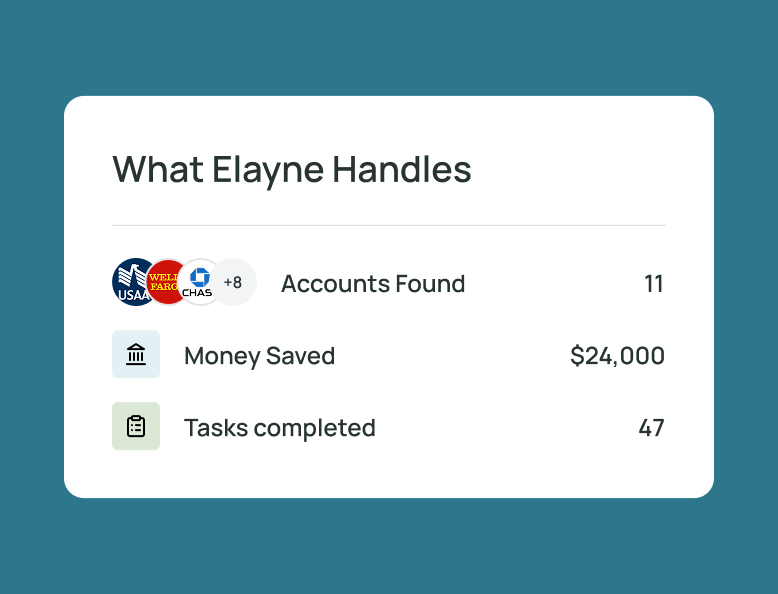Key Takeaways:
- A Small Estate Affidavit allows for simplified transfer of assets without probate in that state of California.
- Beneficiaries must wait at least 40 days after death before filing.
- Key documents include the affidavit form, death certificate, and proof of asset ownership.
{{blog-cta-legal}}
Losing a loved one is always a difficult time, and the legal steps that follow add an extra layer of stress. Fortunately, California offers a simplified option for handling smaller estates that don’t require going through full probate. It’s called the Small Estate Affidavit, and it can save families time, money, and unnecessary complications. We’ll explain what a Small Estate Affidavit is, when and how to use it, and the documents you’ll need to complete the process.
What Is a Small Estate Affidavit in California?
A Small Estate Affidavit is a legal document that allows heirs or beneficiaries to claim assets from a deceased person's estate without initiating a formal probate case. This streamlined process is designed for smaller estates and is often used to collect bank accounts, vehicles, and personal property.
In California, the Small Estate Affidavit process applies when the total value of the estate is less than $184,500 (as of 2024). This threshold does not include certain assets, such as joint tenancy property, life insurance payouts, and retirement accounts with designated beneficiaries.
It’s important to note: real estate cannot be transferred using a Small Estate Affidavit unless a separate process, like a Petition to Determine Succession to Real Property, is followed.
Who Can Use It?
The affidavit can be used by anyone legally entitled to inherit the decedent’s property. This usually includes:
- Heirs identified in a valid will
- If there is no will, heirs determined under California's intestate succession laws
Requirements to File a Small Estate Affidavit
To qualify for this process in California, all of the following must be true:
- The total estate value is $184,500 or less
- The deceased was a California resident
- There is no current or pending probate case
- The assets being claimed are not real estate (unless handled through a different legal process)
Be sure to calculate the estate’s value carefully, excluding exempt assets, to ensure you’re within the legal limit.
Steps to Complete a Small Estate Affidavit in California
If you meet the above conditions, here’s how to move forward:
- Wait at least 40 days after the decedent's passing.
- Collect the required documents:
- Certified death certificate
- Documentation of the asset(s) in question (bank statements, vehicle titles, etc.)
- Proof of your identity and your legal right to the property
- Complete the Small Estate Affidavit form, such as California Judicial Council Form DE-221 (or a similar one).
- Have the affidavit notarized. Notarization is a legal requirement to make the document valid.
- Submit the affidavit and supporting documents to the institution holding the asset (for example, the bank or DMV).
There is no need to file the affidavit with the court, unless you're dealing with real property through a different legal path.
Supporting Documents You’ll Need
When presenting your affidavit to a bank, credit union, or other asset-holding institution, you’ll typically need:
- A certified copy of the death certificate
- The completed and notarized affidavit
- A government-issued ID
- Proof of your relationship to the deceased (such as a birth certificate or marriage license)
- Documentation of the asset (bank account numbers, vehicle titles, etc.)
Some institutions may have their own internal requirements, so it's wise to call ahead and confirm.
Common Mistakes to Avoid
To make the process as smooth as possible, avoid these common errors:
- Filing too early: California law requires you to wait at least 40 days.
- Miscalculating estate value: Be sure to understand which assets are included and which are excluded when determining the total value.
- Missing documentation: Incomplete paperwork will slow down the process and may result in a denied claim.
- Misusing the affidavit for real estate: You cannot transfer real property with a Small Estate Affidavit alone.
{{blog-cta-legal}}
FAQs
1. How long does the process take?
Once the 40-day waiting period has passed and you’ve submitted the required paperwork to the relevant institution, most claims are processed within a few weeks, depending on the organization.
2. Do I need a lawyer to file a Small Estate Affidavit?
Not necessarily. The process is designed to be straightforward enough for most people to complete without legal help. However, if there are disputes or questions about the estate, consulting a probate attorney is a good idea.
3. Can I use this affidavit for real estate?
No. If the estate includes real property, you’ll need to file a Petition to Determine Succession to Real Property (Form DE-310) or pursue probate.
4. Is the affidavit valid outside California?
No. This process is specific to California. Other states have their own procedures and thresholds for small estate claims.
Navigating the loss of a loved one is difficult enough without adding legal complexity. Fortunately, California’s Small Estate Affidavit process offers a streamlined, court-free option to transfer assets from a small estate. By understanding the requirements and gathering the right documents, heirs can avoid lengthy probate proceedings and receive their rightful property faster.
Whether you’re wondering how to file a small estate affidavit in California, or just want to avoid probate headaches, be sure to check out Elayne’s Probate Tool to get instant answers to your probate-related questions.













































